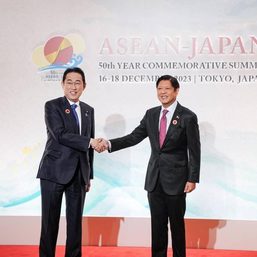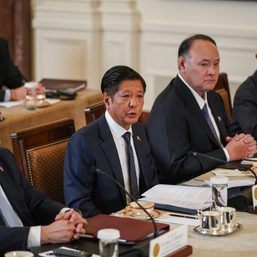SUMMARY
This is AI generated summarization, which may have errors. For context, always refer to the full article.

MANILA, Philippines – Mother knows best. This much has been tested and proven by mothers across the world and throughout history. Since time immemorial, society has strictly reinforced and sealed this notion, with no room for exceptions. Needless to say, everyone is aware of the ideal set-up: mother runs the household while father works and manages the finances.
So what becomes of a household when either party is unable to fulfil the roles expected of them? What happens when a family doesn’t conform to the ideals of society? “Mother knows best” is rarely contested, but does it entail that what father knows is less reliable?
Switching roles
The 2011 Metro Manila Film Festival provided a glimpse of the so-called “house husband” in the film “My Househusband, Ikaw Na!” starring real-life husband and wife, Ryan Agoncillo and Judy Ann Santos. The film depicts the struggles of the unconventional household in which the father stays home to tend to chores, while the wife is tasked to bring home the bacon.
In the film, Ryan’s character looks down upon house husbands, unknowingly foreshadowing his own future as a jobless stay-at-home dad. Complications heighten when Juday’s extended family gets involved, claiming the set-up is unacceptable and embarrassing. The end, however is a “happy” one — Ryan gets a new job, the helper comes back and everyone is at peace.
This goes to show how, despite the liberal trends of the times, the traditional conventions of patriarchy are still very much in effect in the Filipino context.
The film is, however, not the first to exhibit this. The house husband has appeared in several other instances, albeit in a somewhat more demeaning take. Many local soap operas depict the house husband as bums or drunkards who seemingly take pride in their inability to fulfil familial responsibility, even demanding their wives’ support.
It makes sense that the media plays a primary role in the negative view of the stay-at-home fathers. The less manly portrayals by the media in effect, make the switching of roles undesirable, even shameful.
Between pride and promise
Some argue that societal standards exist in order to maintain and maximize the natural order of things — that the roles given to men and women are based on their biological capacity. Indeed, there is a certain truth to this idea.
In an online discussion in DailyMail, University of Manchester occupational psychologist Prof. Cary Cooper shares that “men are unprepared for the rigors of looking after the home and family.” The professor goes on to say that the stress may adversely affect men’s health.
Prof. Cooper explains, “Most men think being a house husband will involve popping on a bit of washing, taking the kids to school and then putting their feet up with a cup of coffee.”
“They are crazy,” he says. “Housewives do much more multi-tasking than almost any man ever has to do in the workplace. That’s not to say men are incapable of doing it. But they have to go into it with realistic expectations.”
The study also links the stress to the lack of social support groups and networks for stay-at-home dads. Unlike mothers, Cooper describes house husbands as “socially isolated,” without other fathers to confide in.
“Unlike women who you will see sitting and talking to each other at the school gate, men in the position of house husband won’t have anyone to talk to.”
Notwithstanding, it appears that pride is also an issue which contributes to the standoffish and distant nature of the house husband.
Mother, father, parent
Ang Lee, acclaimed director of award-winning films “Crouching Tiger, Hidden Dragon” and “Brokeback Mountain,” shares his insights on Askmen.com. Lee, who is married to microbiologist Jane Lin, spent the first 6 years of their marriage playing house husband.
Although humiliating and disgraceful in Chinese culture, Lee says “his wife remained supportive of him and his talents, (a) decision that was not easy for her in the face of so much cultural pressure, but one that ultimately paid off.”
Lee maybe only one example of a house husband who overcame the extreme pressure that came attached with the role, but he proves that success is indeed possible.
Perhaps the issue is not in setting specific titles and job descriptions to parents; rather, the focus should be in the efficiency of the set-up. The family and the children’s well-being, more than society’s requirements and a man’s pride or ego, must be the main focus.
A family’s main goal is to foster an environment conducive to the growth and happiness of each member. As long as the set-up works for both the parents and children, who is to say what’s appropriate or substandard? – Rappler.com
Click on the links below for more.
- [Family] How I ‘met’ my mother
- [Family] The prodigal mom
- [Family] Things I learned from my mom when I was 7
- [Family] Time to relax
Add a comment
How does this make you feel?





There are no comments yet. Add your comment to start the conversation.